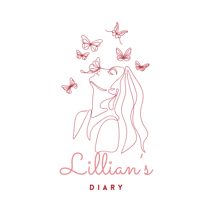5 Simple Ways to Make Your Life More Organized
HEALTHY LIFE
2/20/20257 min read


Establishing Daily Routines
Creating and adhering to daily routines can significantly enhance one's life by fostering a sense of structure and efficiency. At the core of this concept is the understanding that routines help to streamline daily activities, thereby reducing the number of decisions one must make, which in turn diminishes decision fatigue. The implementation of both morning and evening routines can set a positive tone for the day and promote relaxation at night.
In designing an effective morning routine, it is essential to include practices that energize and prepare you for the challenges ahead. This may involve activities such as exercise, meditation, or healthy breakfast preparation. By engaging in these beneficial practices consistently, individuals cultivate habits that promote physical and mental wellbeing, ultimately resulting in enhanced productivity throughout the day. Additionally, incorporating organizational tasks, such as reviewing daily goals or planning your schedule, within your morning routine can further contribute to a more organized lifestyle.
Evening routines also play a crucial role in establishing order and tranquility. Engaging in winding-down activities, such as reading or journaling, can help signal to your body that it is time to relax. Device-free time during the evening allows individuals to disconnect from digital distractions, promoting a more restful environment. Moreover, preparing for the following day—such as laying out outfits or packing lunches—can alleviate morning stress and ensure a smoother start.
By adopting consistent scheduling for both the morning and night, the benefits compound; routines not only foster discipline and organization but also create a framework that aids in personal growth. Incorporating small habits, such as tidying up a specific area each day or setting aside specific times for tasks, ultimately contributes to an organized lifestyle. Embracing daily routines can be a pivotal step toward achieving a more efficient and structured life.
Decluttering and Cleaning Your Space
Maintaining a clean and organized living space is essential for achieving a sense of tranquility and efficiency in daily life. A clutter-free environment not only enhances the aesthetics of your home but also positively impacts your mental well-being. Numerous studies have shown that a tidy space can significantly improve focus and clarity, reducing stress levels and fostering productivity.
One effective approach to decluttering is to adopt the "one-in, one-out" rule, which encourages you to remove an item for every new item that enters your home. This practice helps control the accumulation of belongings and promotes mindfulness regarding purchases. Additionally, regular decluttering sessions, such as monthly or seasonally, can significantly prevent clutter build-up. Consider separating items into categories: keep, donate, and discard, ensuring that you thoughtfully evaluate what truly brings value to your life.
Establishing an efficient cleaning routine is equally crucial. Ensure to set a frequency for essential cleaning tasks, such as vacuuming, dusting, and mopping floors, based on your lifestyle. Daily tidying of common areas and weekly deep-cleaning tasks can be an excellent maintenance strategy. Utilize organizing systems such as bins, labels, and designated spaces for belongings to assist in keeping things in order. These systems not only reinforce organization but also make it easier to locate items when they're needed.
Moreover, the psychological effects of a clean environment cannot be overstated. A well-organized space reduces distractions and allows for improved concentration, making it easier to accomplish tasks at hand. The act of decluttering and cleaning provides a sense of accomplishment, which in turn enhances motivation and creativity. Adopting these practices can lead to substantial benefits, prompting a more organized and fulfilling lifestyle.
Eating Healthy for an Organized Mind
Maintaining a healthy diet serves as a foundational component in fostering an organized mindset. Eating nutrient-rich foods can significantly enhance cognitive function, leading to improved focus and productivity levels. Meal planning is a strategic approach that can assist individuals in achieving nutritional goals and reducing last-minute unhealthy food choices. By dedicating some time each week to plan, one can ensure a balanced intake of proteins, carbohydrates, healthy fats, and essential vitamins.
Creating a meal plan simplifies grocery shopping and cooking, ensuring that wholesome ingredients are readily available. Consider incorporating a variety of foods such as fruits, vegetables, whole grains, and lean proteins. These foods not only nourish the body but also positively affect mood and energy levels. Keeping a consistent schedule for meals can eliminate indecision about what to eat, thus fostering a more organized routine throughout the day.
Moreover, the relationship between nutrition and mental clarity cannot be overstated. Diets rich in omega-3 fatty acids, antioxidants, and fiber have been linked to sharper mental acuity. Foods like salmon, nuts, berries, and leafy greens can provide the brain with the necessary nutrients to function optimally. Additionally, hydration plays a vital role in cognitive performance; drinking enough water throughout the day can enhance concentration and efficiency.
To support your journey towards a healthier lifestyle, consider preparing meals in advance. Batch-cooking and storing portions in the refrigerator or freezer can save valuable time during busy weekdays. This practice not only ensures that healthy options are always available but also helps to establish a structured eating schedule. By making informed choices about your diet, you can pave the way for an organized mind, ultimately translating to greater efficiency in daily life.
Practicing Kindness Daily
In the realm of personal organization, one often overlooks the importance of interpersonal relationships. Practicing kindness daily not only fosters empathy but also enhances our social networks. Engaging in small acts of kindness can transform our interactions, making them more meaningful and satisfying. This dedicated approach to kindness can significantly contribute to a more organized life by alleviating stress and promoting a positive environment.
Simple gestures, such as offering a compliment, lending a helping hand, or writing a thank-you note, can create ripples of positivity throughout your day. For instance, acknowledging a colleague's efforts in a project can strengthen workplace relationships and foster a collaborative spirit, leading to a more organized and efficient work environment. Additionally, small acts of kindness towards friends and family, like preparing a meal or sending a thoughtful message, can enhance emotional connections and provide a sense of stability.
Moreover, being kind to others often leads to experiencing kindness in return, thereby broadening one’s social network. These connections are crucial, as a supportive social structure can be instrumental in maintaining organizational skills. When individuals feel supported, they are more likely to engage in healthy habits that reduce stress, allowing them to manage time and responsibilities more effectively.
Furthermore, cultivating a culture of kindness in daily interactions helps create a more positive atmosphere. When individuals are kind to one another, it promotes a sense of belonging and reduces feelings of isolation. This conducive environment encourages better communication and cooperation, which, in turn, enhances overall organization within social and professional settings.
In essence, integrating kindness into daily life is not just a moral obligation; it is an effective strategy for fostering strong relationships and creating an organized, stress-free existence.
The Power of Reading and Continuous Learning
Engaging in regular reading and continuous learning plays a crucial role in enhancing personal organization. By exploring a variety of subjects, one can obtain valuable insights that aid in structuring thoughts, clarifying goals, and effectively managing time. Reading not only broadens knowledge but also cultivates critical thinking skills, enabling individuals to organize their ambitions more strategically.
To begin implementing reading as a tool for personal organization, consider establishing a dedicated reading list. This list could encompass books on time management, productivity, and self-improvement, alongside novels that stimulate creativity and broaden perspectives. Prominent authors such as Stephen Covey, Cal Newport, and Marie Kondo provide practical strategies that can be transformative. Furthermore, engaging with diverse genres encourages a well-rounded mindset, essential for effective organization.
Another vital aspect of incorporating reading into a busy lifestyle is time management. One effective approach is to allocate specific time slots for reading, treating it as an essential appointment rather than a leisure activity. For instance, setting aside 20-30 minutes each morning or before bedtime can create a consistent reading habit. Audiobooks and podcasts also serve as excellent alternatives, allowing individuals to absorb valuable information during commutes or while exercising, making the most of every moment.
Ultimately, the knowledge gained from reading empowers individuals to better organize their lives. With enhanced cognitive skills and an enriched repository of ideas, one can create actionable plans and effectively prioritize tasks. This ongoing journey of learning cultivates a mindset that prioritizes organization, facilitating a more structured and purposeful life. Consider embarking on this journey today; it promises to yield immeasurable benefits in organizing both personal and professional spheres.
Setting Goals for Better Organization
Achieving a more organized life begins with setting clear and achievable goals. The significance of this process cannot be overstated, as it lays a solid foundation for creating structure and order in daily activities. Utilizing the SMART criteria—Specific, Measurable, Achievable, Relevant, and Time-bound—can greatly enhance the effectiveness of goal-setting. By ensuring that goals adhere to these benchmarks, individuals can clarify their intentions, making it easier to streamline efforts towards attaining them.
To start, identify what areas of your life require organization and structure. For example, it might be beneficial to improve time management, minimize clutter, or enhance productivity. Once you’ve pinpointed a specific area, formulate a clear goal. Instead of stating, “I want to be more organized,” a SMART goal would be, “I will declutter my home office by sorting through documents for 30 minutes every Saturday for the next month.” This goal is specific, measurable, achievable, relevant to your desire for a tidier workspace, and bound by a timeframe.
Once goals are established, it’s essential to track progress systematically. Utilizing tools such as calendars, planners, or digital applications can be immensely helpful in monitoring advancements. Keeping a record not only motivates but also provides clarity on what has been accomplished and what adjustments might be required. Furthermore, regular review sessions are crucial; they allow for recalibration based on personal growth and changes in circumstances. This practice ensures that your goals remain relevant and aligned with your life’s evolving priorities.
In conclusion, setting organized goals using the SMART criteria, tracking them diligently, and periodically reviewing their relevance can lead to enhanced organization in all aspects of life. Embracing this structured approach fosters not only productivity but also a sense of achievement, simplifying the journey toward a more organized existence.
Balancing Work and Personal Life
Achieving a harmonious balance between work responsibilities and personal life is crucial in cultivating an organized lifestyle. The increasing demands of the modern workplace can often blur the lines between professional and personal commitments, leading to potential burnout and decreased productivity. Establishing clear boundaries is essential for maintaining this equilibrium. By setting definitive limits on work hours and ensuring personal time is protected, individuals can create a structured approach to their daily routines.
Effective time management techniques play a vital role in this balance. Utilizing tools such as calendars, task lists, and time-blocking can help individuals allocate time efficiently, ensuring both work tasks and personal activities receive the attention they deserve. For instance, scheduling specific blocks for both work-related projects and personal hobbies can enhance productivity while ensuring that important personal interactions are not sidelined. Moreover, adopting the practice of prioritization allows one to identify and focus on high-impact tasks, minimizing distractions and streamlining efforts.
Realizing the importance of personal time is paramount for achieving overall satisfaction and reduced stress levels. This time can be devoted to activities such as exercise, hobbies, or simply relaxing with family and friends. Engaging in such pursuits fosters a sense of fulfillment that reflects positively on work performance as well. Furthermore, taking periodic breaks from work can rejuvenate the mind, boosting creativity and bolstering work efficiency.
Ultimately, striking a balance between professional obligations and personal life contributes to an organized lifestyle and enhances overall well-being. By establishing clear boundaries, employing effective time management techniques, and prioritizing personal interests, individuals can significantly improve their quality of life.
